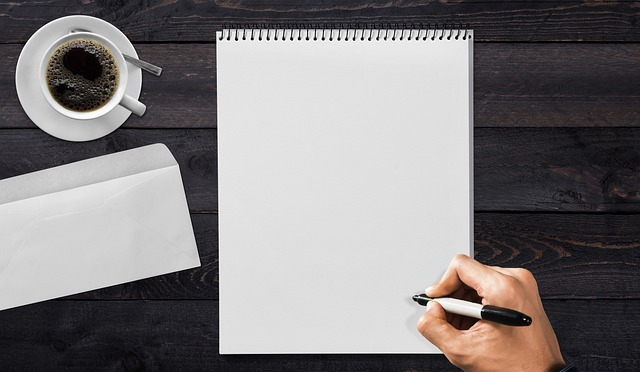We’re living in scary, uncertain times, and for a lot of us, that translates into high levels of stress and anxiety. But as natural as these responses may be, chronic stress and anxiety pose their own threats. Chronic stress...
We’re living in scary, uncertain times, and for a lot of us, that translates into high levels of stress and anxiety.
But as natural as these responses may be, chronic stress and anxiety pose their own threats. Chronic stress has been linked to many serious health conditions, and it has also been shown to depress immune function, which is something none of us need right now.
That’s why we’ve put together a list of 13 things you can do to help you cope during this time. None of these things cost money, and you can do them all at home (or at least in your neighborhood).
13 Ways to Manage Your Coronavirus-Related Stress Right Now
The next time you’re feeling swept up in counterproductive thoughts, try one of these tactics.
1. Take a Few Deep Breaths
If you’re like most people, you probably respond to feelings of emotional distress by taking shorter, shallower, more rapid breaths. This means your body gets less oxygen, which in turn affects your ability to think clearly and function — and that can exacerbate that tangle of emotions.
Taking a few deep breaths will replenish your body’s oxygen supply, and as a bonus, it will give you a few moments to pause, which can also help you calm down.
When you feel yourself getting stressed out, stop and breathe in slowly and deeply through your nose, then exhale through pursed lips. Do this several times until you feel yourself calm down.
Several variations of this exercise exist, so play around until you find something that works best for you.
2. Try a Grounding Technique
If stress and anxiety are threatening to overwhelm you, try one of these grounding techniques. They work by pulling you away from your anxiety-producing thoughts, most of which either dwell on the past or ruminate on the unknown future, and bringing you back into the present.
An easy one to remember is the “five senses” technique. Here’s how you do it: Stop for a moment and think about what all of your five senses are experiencing at that precise moment. What do you hear? What are you smelling? What do you feel on your skin? What do you see? What do you taste?
Whenever you catch your thoughts spiraling out of control, take a minute to pause and do one of these exercises, and hopefully you will feel better quickly.
3. Limit Your Time Online
Many researchers have found a strong connection between heavy social media use and a higher likelihood of experiencing anxiety and depression. The same is true for your smartphone.
This is the case even without the threat of global pandemic hanging over our heads, so imagine how much more intense that dynamic is right now, with where every push alert to our phone could bring news of another border closure or another federal emergency measure or another COVID-19 testing snafu.
Mix the unrelenting flood of news about these unprecedented events with the stress of watching political arguments unfold in comments sections, attempting to sort out the nuggets of truth from the fire hose of misinformation and trying to block out the increasingly panicked posts from family members and friends, and you have a recipe for lots and lots of anxiety.
This is not an argument for complete abstinence from using social media, smartphones and the internet, by the way. These things can bring great value to our lives, especially now more than ever, when we need both the social connections and the critical information they bring to us. (Not to mention deliveries of food and supplies while social distancing!)
However, even good things can be bad for us if we don’t put limits on our consumption, so if you find that being online is causing you a lot of stress, put some parameters in place.
One option is to give yourself an hour to check in the morning and in the evenings. Another option is to institute no-phone hours after a certain time. A third option is to take a few minutes to turn off your phone’s alerts and notifications.
None of those work for you? Here are seven other ideas for you to try.
4. Spend Time in Nature

Sometimes the cure for what ails you is right outside your front door.
Researchers have found that spending time in nature can reduce anxiety, stress and depression. It seems to reduce the levels of cortisol, which is released in response to stress, and the prefrontal cortex — aka the area of the brain that’s active when you’re engaged in repetitive, negative thinking — shows lower amounts of activity. They’re not exactly sure why this happens, just that it does.
City dwellers (and anyone else who doesn’t have access to green spaces due to social distancing and shelter-in-place restrictions), we still have good news for you: Researchers found that listening to calming outdoor sounds or looking at trees and other greenery can have the same effect as spending time in nature.
So fire up a playlist of ambient ocean sounds, gaze at some photos of Canadian forests and feel your stress slowly melt away.
5. Write Your Feelings Down
Journaling is one of the most common strategies for dealing with mental health challenges, and for good reason. Researchers say writing down your feelings can help you make better sense of them. Instead of rushing around your body and mind in a confusing whirl of stimuli, the feelings become understandable, clearer and easier to manage.
Want to try this out but not sure where to start? This post has seven good prompts for you to try.
6. Meditate
Meditation has gotten a lot of press in recent years as a one-size-fits-all solution for everything from a lack of focus to anxiety to boosting your productivity.
But what makes meditation so potent in a time like this is that it helps you develop awareness of your own thoughts, which is the first step to being able to manage them more effectively. If you have the ability to catch yourself getting carried away by your anxiety-producing thoughts, then you’ll also have the ability to redirect them in ways that are more productive and useful for you.
So you want to try meditation but you’re not sure where to begin? Try one of these five free meditation apps and use the guided meditations. Make an effort to meditate at least once a day for a few days, and see if it works for you.
7. Drink Some Water
Feeling anxious? Stop what you are doing, go to the fridge, pour yourself a glass of water and drink it down.
Researchers have found that drinking water can lower a person’s stress and anxiety levels. Our bodies are primarily made of water, and when we’re dehydrated, we don’t function as well as we could. So if you’re feeling panicky, take a moment to drink a cool glass of water, and see if that helps you calm down.
8. Learn a New Skill

You probably noticed your friends’ lists are full of posts about people taking up baking or gardening or cross-stitching right now. There’s a good reason for that: Learning a new skill can occupy your brain so thoroughly that it leaves little room for the rumination that can lead to anxiety and stress.
Researchers have found that learning a new skill can be a great buffer against workplace stress, and that holds true in our day-to-day life as well.
So if you’ve wanted to learn to play a new instrument, how to do carpentry or how to knit, now is a great time to do it. You’ll boost your mental health, and you’ll learn a new skill in the process. That’s a definite win-win!
9. Reach Out to Friends and Family
Part of what makes social distancing so hard is that our need for social connection is hardwired into our DNA. Tight social relationships — and the cooperation and resource-sharing that come with them — are how we’ve survived this long as a species.
The health risks of loneliness are well-known by this point: It can suppress your immunity, lead to greater inflammation of your internal organs, and it can also leave you vulnerable should you face a crisis and need help.
Thanks to technology, we have a lot of ways to stay connected with one another, even though we’re stranded in our houses. Set up a group chat with a group of friends and exchange funny memes. Schedule video chats with friends and family members, with or without quarantinis.
Or you could just pick up the phone.
10. Work Out
“The cure for anything is salt water — sweat, tears, or the sea,” author Isak Dinesen wrote back in the 1930s.
Working out is a fast way to make your own supply of sweat, and it has the added benefit of flushing your body with endorphins, which are the hormones that make you feel good.Here’s more on the very well-documented connections between exercise and stress relief.
You don’t have to go to a gym to work out. All you need is a bit of space, and you can do a full bodyweight workout. You can do yoga (and in fact, many local studios are live-streaming classes now, so check your area!). You can even go for a walk, which, in this time of SUPER INSANITY HARD CORE HULKSMASH WORKOUTS, is probably the most underrated form of exercise.
All you need to do is find something you like doing, and do it at least three or four times a week. What you end up doing doesn’t matter as much as being consistent in whatever you choose to do.
11. Declutter Your House

It doesn’t matter whether you’re KonMari-ing or Swedish death cleaning or “hinching your way to happiness” — the mental health benefits of decluttering are well documented. Now more than ever, your home is your sanctuary, but it’s hard to feel restful and at ease in a house filled with clutter.
Start taking some time each day to deal with clutter. This can mean anything from setting up a new organizational system to shoving a bunch of junk in a box and hiding it in the garage until you feel like dealing with it.
As the clutter vanishes from sight, your home will become calmer and more restful, and who doesn’t want a calm, restful home in a time like this?
12. Create a Schedule
After several days of social distancing and working from home, it can seem like time has become a meaningless construct. What day of the week is it? What time is it? Why am I still in my pajamas at 2 p.m.? Has it really been four days since I washed my hair?
One of the most jarring things about what’s happening now is that all of our previous structures have fallen away, and that can leave us feeling dislocated from everything we used to know and understand.
A simple remedy for this is to establish a daily routine for yourself. This will help you prioritize the things you need to take care of yourself, while also removing the need to make your decisions from scratch. (Decision fatigue is real.)
Take some time to create a schedule for yourself (and for your kids, if you have them), and then do your best to stick with it. It’ll help you create a sense of normalcy in a world that is anything but.
13. Get Enough Sleep
Sleep and stress are intimately connected. If you are stressed out, you can’t sleep. If you can’t sleep, you’re more prone to becoming stressed out because your ability to cope is depleted. It’s a nasty cycle that can be hard to break.
If you’re struggling to sleep at night, try these tricks:
No screen time for an hour before bed. Limit your caffeine intake earlier in the day. Don’t drink alcohol before you go to bed. Exercise during the day. Write down what’s bothering you.If none of these work for you, check out these 20 ways to help you fall asleep.
Things are very hard for a lot of us right now, but if we prioritize taking care of ourselves, we’ll be in a much better place to take care of others. And if we can take care of others, we’ll be able to get through this together.
Caitlin Constantine is the deputy managing editor for The Penny Hoarder.
This was originally published on The Penny Hoarder, which helps millions of readers worldwide earn and save money by sharing unique job opportunities, personal stories, freebies and more. The Inc. 5000 ranked The Penny Hoarder as the fastest-growing private media company in the U.S. in 2017.













